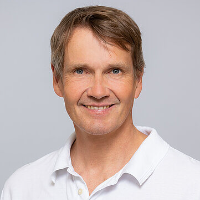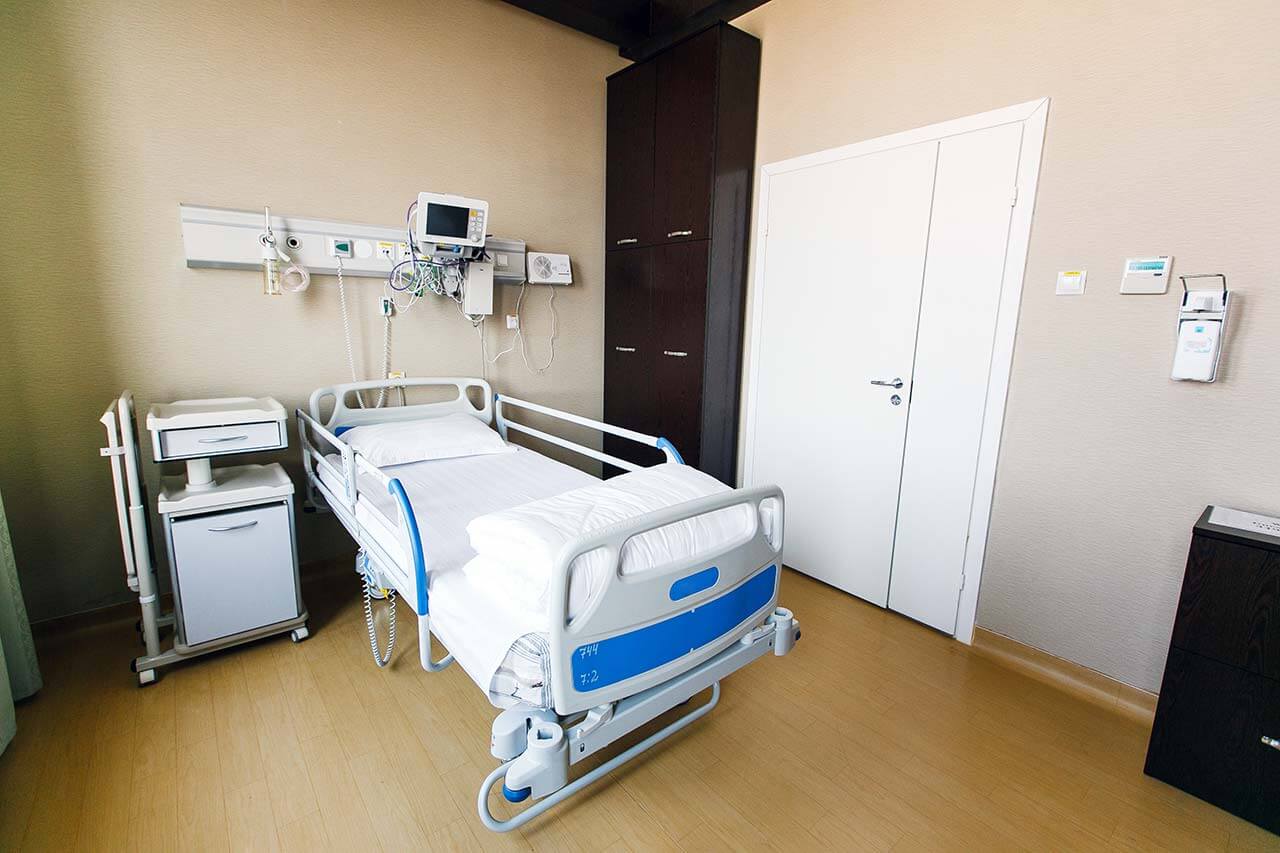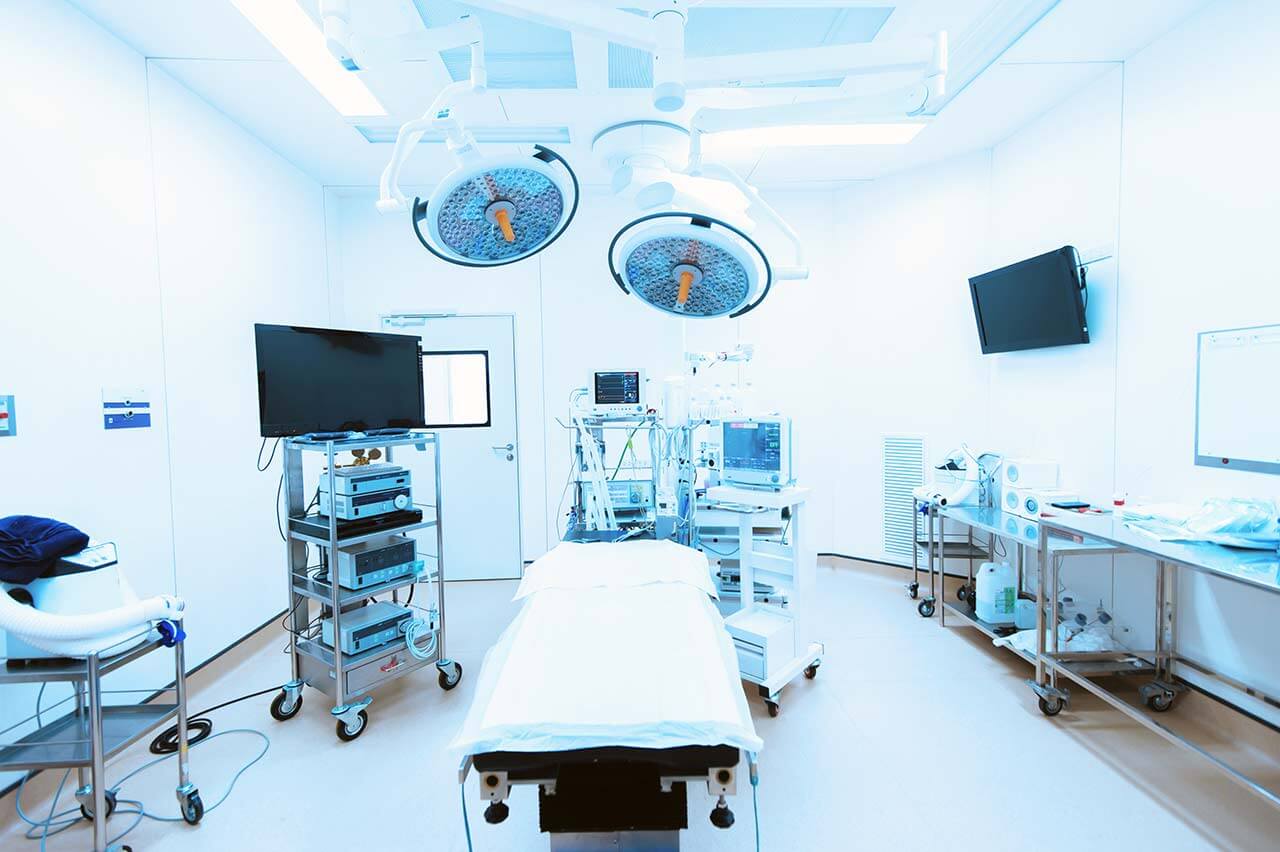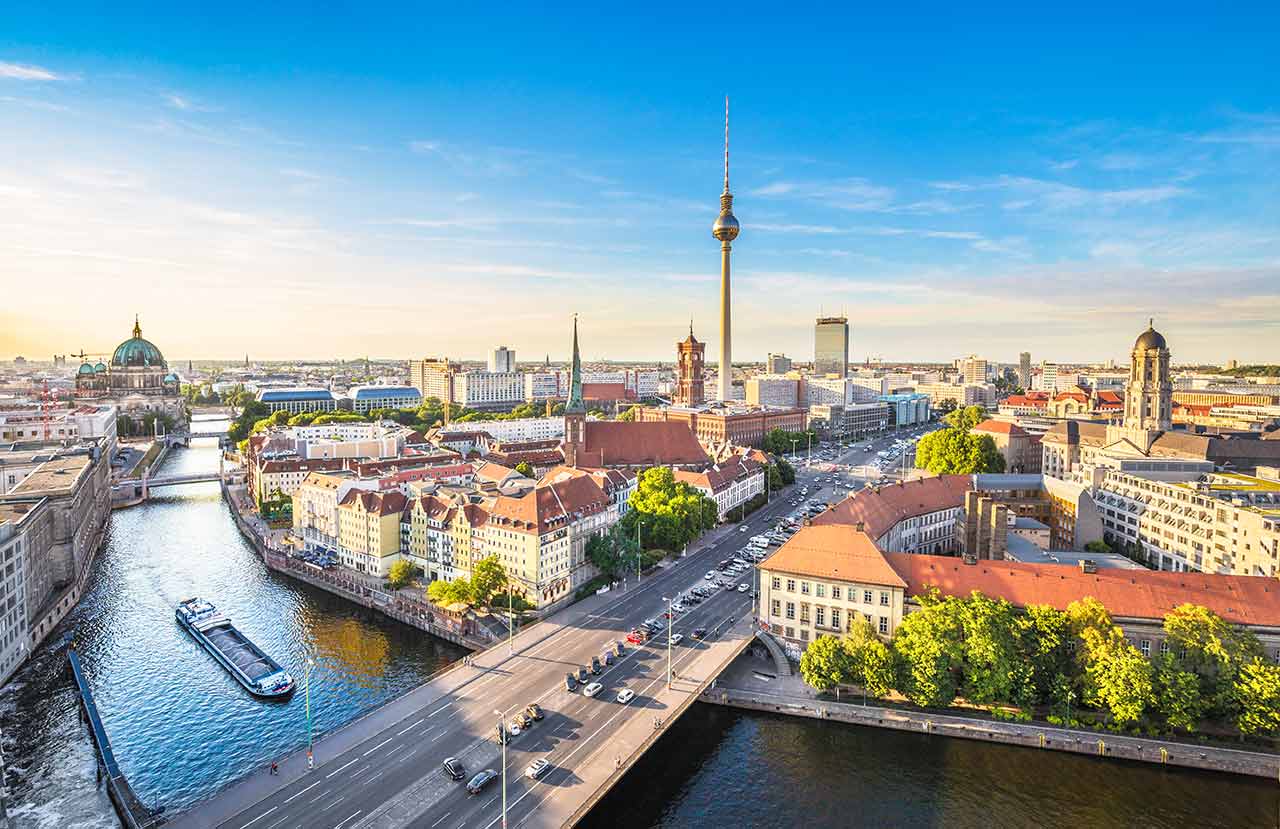
The program includes:
- Initial presentation in the clinic
- clinical history taking
- physical examination
- review of medical records
- laboratory tests:
- complete blood count
- general urine analysis
- biochemical analysis of blood
- indicators of inflammation
- indicators of blood coagulation
- X-ray/MRI examination of the knee
- preoperative care
- total knee replacement, cost of the implant is included
- symptomatic treatment
- control examinations
- the cost of essential medicines and materials
- orthopedic appliances
- physiotherapy
- nursing services
- full hospital accommodation
- explanation of future recommendations
How program is carried out
Preliminary preparation for surgery: quitting smoking and drinking alcohol 2 weeks before surgery; cancelling non-steroidal anti-inflammatory drugs (diclofenac, ibuprofen); cancelling anticoagulants (warfarin); normalization of body mass, if possible.
Preoperative examination, including consultation with an anesthesiologist and necessary related specialists. X-ray examination and MRI of the knee joints are performed. The examination takes 1-2 days.
Surgical knee replacement. The operation is performed under general anesthesia and lasts for about 2 hours.
Postoperative care. During the first day after the intervention the patient stays in the intensive care unit, under round-the-clock medical supervision. After that, with a smooth course of the postoperative period, the patient is transferred to a regular ward and the drains are removed. The range of motion expands gradually, from light toes movements to walking. Walking with the use of walking aids is allowed in 3-5 days after the operation. Normal walking without the use of walking aids (crutches, cane) will become possible in 6-12 weeks.
Finally, the attending physician will evaluate the results of control examinations, schedule the date of discharge from the hospital and give you detailed recommendations for further follow-up and treatment.
Required documents
- Medical records
- X-ray examination, MRI/CT scan (if available)
Service
You may also book:
 BookingHealth Price from:
BookingHealth Price from:
About the department
According to the reputable Focus magazine, the Department of Orthopedics, Traumatology, Foot Surgery and Spinal Surgery at the Martin Luther Hospital Berlin ranks among the top departments in Germany specializing in the treatment of musculoskeletal diseases!
The department offers the full range of modern diagnostics and treatment of skeletal, joint, tendon and muscle diseases, as well as musculoskeletal injuries. The medical facility was founded in 1974 and became one of the pioneers in its areas of specialization in Germany. As of today, all classical and innovative conservative and surgical treatment methods that have proven themselves all over the world are available here. The excellent quality of the medical services provided in the department is awarded with various certificates, including the endoCert certificate and the PRIMO MEDICO certificate. Based on an independent assessment of patients on the eKomi online resource, the medical facility also holds a leading position among German Orthopedic Centers.
The department is headed by Prof. Dr. med. Wolf Petersen, who has repeatedly been ranked among the top German doctors in the field of knee surgery and sports orthopedics according to the Focus magazine! In addition, the specialist is recognized as one of the best orthopedists in Berlin in the Leading Medicine Guide rating and is a holder of a certificate of the German Knee Society (DKG).
The department offers the services of a modern Joint Replacement Center, which successfully performs operations to partially and totally replace the knee, hip, shoulder and ankle joints. In 2014, the center became one of the first in Berlin to receive the Endocert certificate – the leading quality certificate in the field of endoprosthetics worldwide. Orthopedists, traumatologists, anesthesiologists and rehabilitation specialists work hand in hand at the Joint Replacement Center, which guarantees its patients comprehensive medical care. Most arthroplasty procedures are performed using sparing minimally invasive techniques, which results in a rapid wound healing and the patients can return to their normal life in the shortest possible time. After the operation, experienced physiotherapists work with the patients. Their efforts are aimed at strengthening muscles and quickly restoring mobility. Each patient receives an individual treatment regimen, which is developed taking into account his clinical case, the severity of joint damage, age, general health condition and other factors. It should be noted that the Joint Replacement Center regularly admits foreign patients, which indicates the highest quality of medical services.
Orthopedics also focuses on the conservative and arthroscopic treatment of knee, hip, elbow and shoulder pathologies. Arthroscopic interventions are characterized by minimal trauma, but at the same time they can effectively get rid of cartilage lesions, impingement syndromes, ligament tears, rotator cuff tears, shoulder dislocations, etc. The essence of the arthroscopic procedure is to make two miniature incisions in the area of the affected joint, through which an arthroscope, a special endoscopic instrument with a video camera, is inserted into the joint cavity. The arthroscope allows the orthopedist to see all the intra-articular structures on the screen in a multiple zoom and to perform the necessary therapeutic manipulations, if required. The period of hospitalization after the arthroscopic intervention does not exceed 3 days, which is a great advantage for the patient.
Traumatology is an integral part of the department's clinical practice. The department deals with the treatment of musculoskeletal injuries, including multiple injuries, sports injuries and injuries in the elderly, the treatment of which requires a special competence from doctors. The department's specialists also have vast experience in the treatment of osteoporotic fractures. The treatment may involve the use of both conservative and surgical techniques, depending on the severity of the injury.
The department's orthopedists are also responsible for foot surgery. The department has modern equipment for comprehensive diagnostics of the foot, based on the results of which an individual treatment regimen is developed for the patient. The medical facility mostly admits the patients with pathologies such as Achilles tendon ruptures, heel spurs, hallux rigidus, hallux valgus, ankle cartilage lesions, deformities of the little finger, etc. In many cases, the specialists manage to use only conservative treatment methods: physiotherapy and wearing special orthopedic shoes. However, some situations still require a surgical intervention, which is usually performed using low-traumatic microsurgical techniques.
The department also offers a wide range of services in the field of spinal surgery. When a patient comes to the department with complaints of back pain, the doctor carries out a clinical examination, after which he usually prescribes the necessary imaging tests: CT or MRI scanning and/or myelography. Whenever possible, the doctors use only drug therapy and physiotherapeutic procedures, while minimally invasive surgical interventions are performed in more complex cases. The specialists in this field most often treat patients with chronic back pain, spinal stenosis, vertebral traumatic injuries and fractures, spinal instability, post-traumatic spinal deformities, etc.
The department's main clinical activities include:
- Orthopedics
- Joint replacement surgery
- Hip replacement surgery
- Knee replacement surgery
- Shoulder replacement surgery
- Ankle replacement surgery
- Revision interventions to replace the previously implanted prostheses (for example, in a case of loosening of the prosthesis elements, infection, etc.)
- Arthroscopy
- Knee arthroscopy
- Interventions on the meniscus: partial meniscus resection, meniscus suturing, meniscus replacement and transplantation
- Interventions on the cartilages: cartilage curettage, microfracturing, refixation of osteochondral fractures, matrix-induced autologous chondrocyte implantation (MACI), matrix-induced chondrogenesis (AMIC), corrective osteotomy
- Interventions on the cruciate ligaments: arthroscopic double-bundle anterior cruciate ligament reconstruction with the semitendinosus tendon, patellar tendon transplantation with a minimally invasive technique or the Pressfit technique, revision interventions, replacement of the posterior cruciate ligament with the semitendinosus tendon, reconstructive interventions for multiple ligament injuries
- Removal of the periarticular muscles
- Arthrolysis
- Arthroscopic lavage
- Shoulder arthroscopy
- Subacromial decompression
- Restoration of the rotator cuff in a case of its tear
- Bankart procedure
- Wrist arthroscopy
- Resection of the disc of the wrist joint
- Elbow and hip arthroscopy
- Removal of free intra-articular bodies
- Arthroscopic lavage
- Arthrolysis
- Knee arthroscopy
- Cancer surgery
- Resection of benign connective and bone tissue tumors
- Total resection of primary bone and soft tissue sarcomas in combination with a limb reconstruction using a rotationplasty or a prosthesis implantation
- Bone metastasis resection
- Septic and reconstructive surgery
- Treatment of acute and chronic inflammatory processes in bone tissue
- Bone restoration, including in a case of distant metastases, by applying the Ilizarov apparatus or bone grafting with angioplasty
- Closure of skin defects with local or microvascular flaps
- Treatment of acute and chronic joint infections
- Treatment of artificial joint infections
- Surgery for joint stiffness after an unsuccessful attempt to preserve the endoprosthesis (after revision interventions and in significant loss of bone tissue)
- Repair of axial deformities after the treatment of infections of the lower limbs
- Treatment of bone infection in diabetic foot syndrome
- Treatment of Charcot foot
- Preservation of limbs with shunting and reconstruction with skin flaps in a case of arterial occlusion
- Treatment of acute and chronic soft tissue infections
- Treatment of infections caused by multidrug-resistant pathogens
- Joint replacement surgery
- Traumatology
- Geriatric traumatology
- Treatment of hip fractures
- Treatment of radial fractures
- Treatment of vertebral fractures
- Sports traumatology
- Knee injuries
- Ankle injuries (for example, torn ligaments)
- Shoulder injuries (for example, shoulder dislocation)
- Achilles tendon injury
- Treatment of injuries caused by accidents at work
- Treatment of bone fractures of the upper and lower limbs
- Treatment of complex injuries, including multiple ones
- Geriatric traumatology
- Foot surgery
- Surgical repair of congenital foot deformities
- Surgical repair of neuropathic and myopathic foot deformities
- Ankle fusion in congenital and acquired foot deformities
- Joint-preserving corrective osteotomy of the metatarsus in degenerative and congenital deformities
- Corrective osteotomy (subcapital and/or basic) and soft tissue surgery (McBride procedure) for the foot with a flat transverse arch and complaints of foot pain
- Resection arthroplasty (Keller-Brandes procedure) or arthrodesis (joint fixation) for arthrosis of the main joint of the big toe
- Surgical repair of rheumatic deformities of the foot and metatarsus
- Spinal surgery
- Microscopic nucleotomy
- Open intervention to eliminate spinal stenosis with nerve root neurolysis
- Posterior and anterior lumbar intervertebral fusion for degenerative spinal instability
- Dorsoventral fusion for congenital spondylolisthesis
- Dorsoventral fusion for instability of the cervical, thoracic and lumbar spine in inflammatory or oncological processes in combination with allogeneic vertebral body replacement
- Straightening spinal fusion for inflammatory and post-traumatic spinal deformities (ankylosing spondylitis, chronic polyarthritis)
- Resection of spinal tumors
- Infiltration therapy
- Other medical services
Curriculum vitae
Higher Education and Professional Career
- 2006 Additional qualification in Traumatology.
- 2006 Board certification in Orthopedics and Traumatology.
- 2005 Habilitation at the Faculty of Medicine of the Westphalian Wilhelm University and Venia Legendi in Traumatology.
- 2002 Venia Legendi in Orthopedics.
- 2001 Additional qualification in Sports Medicine.
- 2001 Board certification in Orthopedics.
- 1997 Doctoral thesis defense, Faculty of Medicine at the Christian Albrecht University of Kiel. Subject: "The structure of the meniscus vessels of the knee joint and the treatment of their diseases".
- 1997 Admission to medical practice.
- 1995 Intern at the Lubinus Hospital in Kiel.
- 1989 - 1995 Study of Human Medicine at the Christian Albrecht University of Kiel.
Professional Career
- Since 2009 Deputy Head of the Martin Luther Hospital Berlin.
- Since 2008 Head of the Department of Orthopedics, Traumatology, Foot Surgery and Spinal Surgery at the Martin Luther Hospital Berlin.
- 2007 Extraordinary Professor, Faculty of Medicine, Westphalian Wilhelm University.
- 2006 Managing Senior Physician in the Department of Traumatology, Hand Surgery and Reconstructive Surgery at the University Hospital Muenster.
- 2003 Senior Physician in the Department of Traumatology, Hand Surgery and Reconstructive Surgery at the University Hospital Muenster.
- 2001 Senior Physician in the Department of Orthopedics, University Hospital Kiel.
- 2000 Acting Head of the Section of Arthroscopy and Sports Traumatology, Department of Orthopedics at the University Hospital Kiel.
- 2000 Research Fellow, Department of Orthopedics, University Hospital Kiel.
- 1997 Intern at the Lubinus Hospital in Kiel.
Memberships in Professional Societies
- German Trauma Society (DGU).
- German Society for Orthopedics and Trauma (DGOOC).
- Society for Arthroscopy and Joint Surgery (AGA).
- German Knee Society (DKG).
- Society for Orthopedic Traumatologic Sports Medicine (GOTS).
Awards and Prizes
- 2009 AGA Medi Award of the Year.
- 2008 ESSKA Prize for the Best Article on Biomechanics.
- 2007 Imhäuser Award of the Year.
- 2002 Hannes Schobert Award of the Year.
Photo of the doctor: (c) Martin-Luther-Krankenhaus
About hospital
According to the Focus magazine, the Martin Luther Hospital Berlin ranks among the top medical facilities in the region, and is also recognized as the leading hospital specializing in the treatment of foreign patients with orthopedic diseases!
The hospital positions itself as an Emergency Trauma Center with the top-class medical care. The hospital was founded in 1931, so its work is based on long experience and rich traditions. The hospital operates on the basis of the Charite University Medical Complex, which is one of the leading healthcare facilities not only in Europe, but throughout the world.
The specialists admit about 12,000 inpatients and about 18,000 outpatients every year. The hospital has 285 beds for the accomodation of its patients. The patient can count on the most advanced medical equipment, excellent doctors with a unique practical experience, a professional care and an individual approach. A high level of qualification, a combination of professionalism and interdisciplinary cooperation are the key to high-quality medical care corresponding to the international standards.
The quality of treatment and patient care is regularly monitored by independent experts, for example, the hospital is certified according to the DIN EN ISO 9001:2015 standards. All this contributes to the excellent reputation of the hospital in Germany and far beyond its borders. More and more patients from around the world trust their health to this particular medical facility every year.
The hospital is located in a central but quiet place in Berlin. It is surrounded by greenery and beautiful scenery, which has a positive effect on the recovery process of patients and their emotional state.
Photo: (с) depositphotos
Accommodation in hospital
Patients rooms
The patients of the Martin Luther Hospital Berlin live in comfortable rooms with an ensuite bathroom with a shower and a toilet. The furnishing of a standard patient room includes an automatically adjustable bed, a bedside table, a wardrobe (a locker for valuables is also provided to each patient), a TV, and a telephone. Wi-Fi is also available in the patient rooms.
If desired, the patient can choose to stay in an enhanced comfort room, which additionally offers a mini-bar with free soft drinks and snacks, a safe for storing valuables and a cozy relaxation area for you and your visitors. The bathrooms of the enhanced comfort rooms are equipped with a hairdryer, a cosmetic mirror, toiletries, a fluffy bathrobe and towels that are changed daily.
There is a terrace on the roof of the hospital where one can enjoy a beautiful view of the surroundings. The hospital also has a beautiful green park for walking in the fresh air
Meals and Menus
The patients of the hospital are offered tasty and varied three meals a day: breakfast, lunch and dinner. In addition to the standard menu, there are vegetarian and vegan menus. In the case of intolerance to any food, please inform the medical staff about your food preferences in advance. After that, you will be offered an individual menu.The hospital also has many machines with mineral water, various types of tea and coffee.
In addition, the hospital houses the PAULS Deli Restaurant, which offers a variety of dishes, fresh salads, appetizers, and desserts. One can also buy fresh newspapers, magazines, and toiletries here.
Further details
Standard rooms include:
Religion
There is a chapel on the ground floor of the hospital where patients can attend a divine worship or take a quiet moment for a prayer.
If desired, patients can turn to the chaplain of the hospital, who will carefully listen to them and provide the necessary spiritual support, hold a confession and a communion.
Accompanying person
Your accompanying person may stay with you in your patient room or at the hotel of your choice during the inpatient program.
Hotel
You may stay at the hotel of your choice during the outpatient program. Our managers will support you for selecting the best option.




